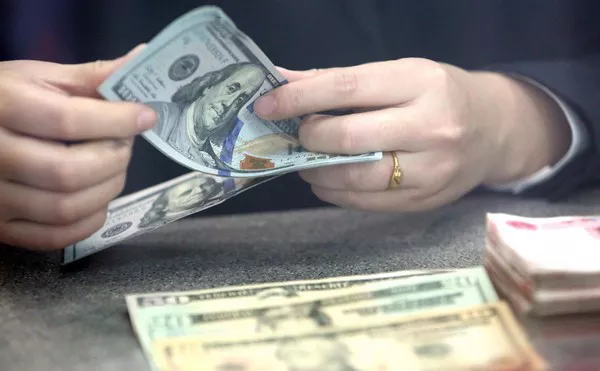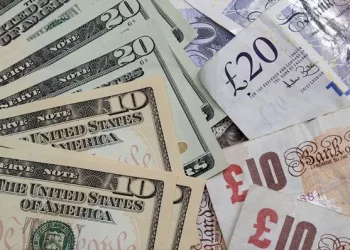In today’s interconnected global economy, understanding currency exchange rates is essential—whether you’re a traveler, an investor, a business owner, or simply someone curious about how much your money is worth abroad. The exchange rate between the US Dollar (USD) and the Thai Baht (THB) is especially significant due to Thailand’s growing role as a key player in Southeast Asia’s economy and a popular destination for tourists and expatriates alike.
In this article, we’ll explore the current USD to THB exchange rate, what influences these rates, and how much $100 in USD would convert into Thai Baht. We’ll also delve into the mechanisms of the forex market, discuss practical considerations for exchanging currency, and highlight factors to watch for when dealing with USD and THB conversions. Whether you’re planning a trip to Thailand or managing international transactions, this comprehensive guide will give you a clear, practical understanding.
What Determines the USD to THB Exchange Rate?
Exchange rates fluctuate constantly due to a variety of economic, political, and market forces. Before we calculate how much $100 is in Thai Baht, it’s important to understand the main factors that influence these rates:
1. Supply and Demand in the Forex Market
The foreign exchange (forex) market is where currencies are bought and sold. The price of one currency in terms of another—called the exchange rate—is primarily driven by supply and demand dynamics. When demand for USD rises, its value strengthens against other currencies, including the THB, and vice versa.
For example, if more Thai businesses or investors want to buy USD (perhaps for importing goods from the US or investing in American assets), the demand for USD increases, pushing its price higher against the Baht.
2. Interest Rate Differentials
Central banks control interest rates, and these rates influence investor behavior. The US Federal Reserve and the Bank of Thailand set their benchmark interest rates based on economic conditions. If the US offers higher interest rates than Thailand, it can attract investors looking for better returns, increasing demand for USD and strengthening it against the Baht.
Conversely, if Thailand raises its rates or the US lowers theirs, the Baht might gain strength against the USD.
3. Economic Indicators and Data
Economic data such as GDP growth, unemployment rates, inflation figures, and trade balances provide insight into the health of an economy. Strong economic performance in the US compared to Thailand usually means a stronger USD relative to THB.
For instance, if US economic reports reveal robust job growth and rising consumer spending while Thailand faces economic challenges, the USD will likely appreciate against the Baht.
4. Political Stability and Geopolitical Events
Political stability plays a key role in investor confidence. Political unrest or uncertainty in Thailand could weaken the Baht, whereas stability in the US tends to support a stronger USD. Additionally, global geopolitical events, such as trade disputes or regional conflicts, can cause short-term volatility in the USD/THB rate.
5. Market Sentiment and Speculation
Forex traders also move currencies based on sentiment, speculation, and technical analysis. Large institutional investors and hedge funds can influence short-term exchange rates by buying or selling significant amounts of currency.
Current USD to THB Exchange Rate: A Snapshot
As of the latest data in 2025, the USD to THB exchange rate hovers around 1 USD = 34.50 THB. This means that for every 1 US Dollar, you receive approximately 34.50 Thai Baht. Keep in mind that exchange rates fluctuate throughout the day depending on market activity.
How Much Is $100 in Thai Baht?
Using the approximate exchange rate of 34.50 THB per USD, converting $100 would yield:
100×34.50=3,450 THB100 \times 34.50 = 3,450 \text{ THB}
So, $100 USD is roughly equal to 3,450 Thai Baht.
Practical Considerations When Exchanging USD to THB
While the spot exchange rate provides a base figure, the actual amount you receive when exchanging USD to THB can vary depending on where and how you convert your money.
1. Exchange Fees and Commissions
Currency exchanges often charge a fee or commission, which can reduce the amount of Baht you get for your USD. Banks, exchange bureaus, airports, and online platforms may have different fee structures.
- Banks: Usually offer competitive rates but may have higher fees.
- Currency Exchange Booths: Convenient but might have wider spreads and fees.
- ATMs in Thailand: Often dispense Baht directly, but check your bank’s foreign transaction and ATM fees.
2. Exchange Rate Spread
The “spread” is the difference between the buy and sell rate offered by a currency exchanger. This margin covers their costs and profit. Retail customers often pay a less favorable rate than the interbank market.
For example, if the interbank rate is 34.50 THB/USD, a currency exchange might offer 34.20 THB/USD for selling you Baht, effectively lowering the value you receive.
3. Timing Your Exchange
Because exchange rates fluctuate, the timing of your currency conversion can affect how much Baht you receive. If you expect the Baht to weaken against the USD, you might exchange money sooner. Conversely, if the Baht looks set to strengthen, delaying conversion might yield better rates.
How to Track and Predict USD to THB Movements
For those more engaged in forex trading or international finance, understanding how to track and predict exchange rate movements can be valuable.
Tools for Monitoring Exchange Rates
- Forex Trading Platforms: Offer real-time rates and charts.
- Financial News Websites: Bloomberg, Reuters, and CNBC provide updates and analyses.
- Central Bank Announcements: The Bank of Thailand and the US Federal Reserve publish key data and decisions that influence exchange rates.
Technical Analysis
Forex traders often use charts and indicators like Moving Averages, Relative Strength Index (RSI), and Fibonacci retracements to identify trends and potential reversal points in the USD/THB pair.
Fundamental Analysis
Following economic releases such as US Non-Farm Payrolls, Thailand’s export data, inflation reports, and interest rate decisions can provide insights into future exchange rate movements.
The Role of USD and THB in International Trade and Travel
USD: The Global Reserve Currency
The US Dollar remains the most widely used currency in international trade and finance. Many commodities, including oil and gold, are priced in USD. Its global acceptance makes it a benchmark currency in forex markets.
THB: Thailand’s Gateway Currency
Thailand’s economy heavily depends on exports, tourism, and foreign investment. The Baht’s value affects Thailand’s competitiveness in trade and the cost of travel for foreigners.
Impact on Tourists and Businesses
- Tourists: A stronger Baht means it’s more expensive for US tourists in Thailand, while a weaker Baht offers better purchasing power.
- Businesses: Companies importing goods from the US will pay more if the Baht weakens, increasing costs. Exporters to the US benefit from a weaker Baht as their products become cheaper for American buyers.
Historical Perspective: USD to THB Exchange Rate Trends
Over the past decade, the USD/THB exchange rate has shown both volatility and gradual trends reflecting global economic events, such as:
- The 2015–2016 period when the Baht strengthened due to strong tourism and economic growth.
- The 2020 COVID-19 pandemic impact, which caused significant fluctuations as global markets reacted to economic shutdowns.
- The post-pandemic recovery phase, with central bank policies in the US and Thailand influencing rate movements.
Understanding these historical contexts helps traders and travelers anticipate possible future scenarios.
Tips for Getting the Best Value When Exchanging USD to THB
- Compare Rates: Always check rates from multiple sources before exchanging currency.
- Avoid Airport Kiosks: These often have the worst rates and highest fees.
- Use Bank ATMs: Usually provide fair rates, but check your own bank’s fees.
- Consider Currency Exchange Apps: Some apps allow you to lock in rates ahead of time.
- Be Mindful of Timing: Exchange money when the rates are favorable, especially for large amounts.
Conclusion
Understanding the USD to THB exchange rate is crucial for anyone dealing with money transfers, travel, or investment between the United States and Thailand. Currently, $100 converts to approximately 3,450 Thai Baht based on the prevailing exchange rate of about 34.50 THB per USD. However, the exact amount you receive depends on timing, fees, and the method of exchange.
By grasping the economic factors behind exchange rate fluctuations and utilizing smart currency exchange strategies, you can maximize your money’s value whether you’re visiting Thailand, conducting business, or trading in the forex markets.
Staying informed and aware of global financial trends will empower you to make better decisions and navigate the dynamic world of currency exchange with confidence.
Related Topics:


























